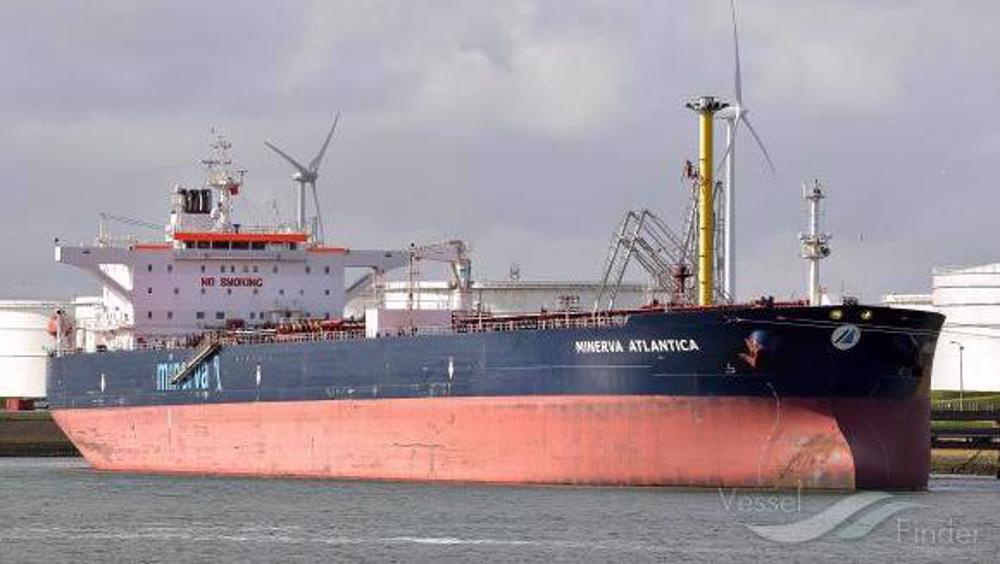BNN
Wed, 28 Feb 2024 18:28 UTC – SOTT net

An unexpected incident unfolds as the German frigate ‘Hessen’ mistakenly attacks a U.S. MQ-9 Reaper drone, highlighting the complexities of international military operations and the critical need for clear communication and reliable technology.
On Monday, an unexpected incident unfolded over the Red Sea as the German frigate ‘Hessen’ mistakenly launched an attack on a U.S. MQ-9 Reaper drone. This event not only underscores the risks of military misfires but also casts a shadow over the diplomatic and military relations between Germany and the United States.
Comment: Germany is readily doing the US’ bidding, for both keep the proxy war in Ukraine, and the Gaza genocide, and so it’s unlikely this will cause to much of a disruption in their relations.
The missiles, which malfunctioned and plunged into the sea, brought to light the vulnerabilities in current military operations and the potential for unintended consequences.
Chronology of the Incident
The incident took place during a routine operation aimed at safeguarding international shipping lanes against potential threats. The ‘Hessen,’ participating in an EU mission in the Red Sea, identified what was believed to be a suspicious drone. Acting on this identification, the warship deployed two missiles intended to neutralize the perceived threat. However, the operation took an unexpected turn when both missiles failed to function as intended, resulting in their fall into the sea. Further complicating matters, it was later confirmed that the target was, in fact, a U.S. MQ-9 Reaper drone, not an adversarial entity.
Investigation and Implications
The reasons behind the missile malfunction remain undisclosed, sparking questions about the reliability of the weaponry and the protocols in place for identifying and engaging targets. This incident has prompted an investigation to understand the sequence of events that led to this near-catastrophic mistake. The outcome of this inquiry is anticipated with keen interest, as it will likely influence future operational procedures and the strategic partnership between Germany and the United States, especially in
collaborative military missions.
Reflections on International Military Cooperation
This mishap is a stark reminder of the challenges and complexities inherent in international military operations. As nations collaborate to address global security threats, the importance of clear communication, reliable technology, and stringent operational protocols cannot be overstated. The incident involving the ‘Hessen’ and the U.S. drone over the Red Sea serves as a cautionary tale, urging a reevaluation of current practices to prevent similar occurrences in the future. As the investigation unfolds, the international community awaits insights that could fortify military cooperation and enhance global security measures.
The unintended engagement between the German frigate and the U.S. drone emphasizes the delicate balance between vigilance and precision in military operations. As the world watches, the resolution of this incident may well set a precedent for how misfires and misunderstandings are addressed, ensuring that partnership and trust remain the cornerstones of international defense collaboration.
Comment: Not only have the German Navy now inducted themselves into rapidly growing Western military hall of shame, but by participating in the Red Sea operation against Yemen, which is the West’s facilitation of Israel’s genocide in Gaza, their commercial shipping will no longer be allowed to pass through that route, significantly raising costs and delivery times for their citizens and their businesses:
- Feb 2024: British nuclear submarine missile MISFIRES and ‘plops’ into the ocean, 2nd such incident amid a myriad of other Navy fails
- Feb: UK’s flagship aircraft carrier HMS Queen Elizabeth suffers ANOTHER malfunction and won’t lead major NATO war game
- January: $14M engine of US Air Force F-35 destroyed after engineer left flashlight inside it before test run
- January: British warship is out of action after CRASHING into another Royal Navy vessel, ship ‘got stuck in reverse’
- January: US supersonic bomber crashes
- January: United, Alaska Airlines find loose hardware on door plugs on several Boeing 737 Max 9 planes
Meanwhile in Russia: Russian arms production has Europe’s warmongers worried
The footage below shows a German misfire incident that occurred in 2018:
On 21 June 2018, Sachsen was operating with Lübeck near the Arctic Circle when it attempted to fire a SM-2 Block IIIA missile, and it exploded above the ship. The explosion scorched the paint off the bridge and the vertical launch cells battery. Two German sailors suffered minor injuries.
https://www.sott.net/embed/Pc8KuJ5Qs4DyYzPW5z89nO1Y2T7
See Also:
- Putin defeated US plan for Russia – Nuland
- France creates coalition to arm Ukraine with long-range weapons
- Two years on… Ukraine conflict a historic watershed exposing Western imperialism’s dead-end
- Western special forces working in Ukraine – FT
——————–
Released Israeli Yocheved Lifshitz says her Hamas captors were ‘friendly’ and shared their food
24.10.2023 #AlQassamBrigades#IsraelHamasWar#Hamas
#AlQassamBrigades #IsraelHamasWar #HamasOne of the Israeli captives released by the armed wing of Hamas on Monday evening has been telling her story. Yocheved Lifshitz is one of two elderly women released for what Hamas says were humanitarian reasons. Their husbands remain behind, detained in Gaza. The release followed mediation efforts from Qatar and Egypt. Al Jazeera’s Alan Fisher joins us live from Occupied East Jerusalem for the latest updates.
—————————–
US sanctions target UAE shipping firm for Russia oil price cap ‘violations’
Thursday, 18 January 2024 5:39 PM [ Last Update: Thursday, 18 January 2024 5:39 PM ]

The US Treasury has imposed sanctions against a shipping company based in the United Arab Emirates (UAE) in connection with Russian crude oil exports. (File photo)
The United States has imposed sanctions against a shipping company based in the United Arab Emirates (UAE) for violating the $60-per-barrel price cap on Russian crude oil exports.
The Treasury said in a statement released on Thursday that the Office of Foreign Assets Control (OFAC) had imposed sanctions on Hennesea Shipping Co Ltd, which it said was the beneficial owner of 18 mostly older tankers acquired in late 2022.
“The US Department of the Treasury’s OFAC is taking its first oil price cap enforcement action of 2024, targeting a shipping company linked to a price cap violation,” the statement from the Treasury read.
Deputy Secretary of the Treasury Wally Adeyemo said, “Today’s actions once again demonstrate that anyone who violates the price cap will face the consequences.”
“No one should doubt our coalition’s commitment to stopping those who help the Kremlin.”
The HS Atlantica, one of the vessels owned by Hennesea, was previously identified by the Treasury for transporting Russian-origin crude oil that exceeded the $60 cap.
The objective of the price limit on Russian crude oil, which was implemented by the G7 in December 2022, is to reduce the funds accessible to Russia amid the conflict in Ukraine. This will be achieved by permitting Western-provided insurance and other services solely on shipments that are priced below $60 per barrel.
“The price cap is intended to maintain a reliable supply of crude oil and petroleum products to the global market while reducing the revenues the Russian Federation earns from oil after its own war of choice against Ukraine inflated global energy prices,” the Treasury statement said.
The decision is said to block Hennesea’s dollar-based transactions, which will place the firm on the Specially Designated Nationals list.
“All property and interests in property of (Hennesea) that are in the United States or in the possession or control of US persons are blocked and must be reported to OFAC.,” the Treasury stated.
Washington first banned the violators of the price cap in October 2023, targeting two companies and two of their tankers. Several other entities and vessels have been subject to sanctions over cap violations since.
The European Union has also joined the sanctions campaign.
Press TV’s website can also be accessed at the following alternate addresses:
